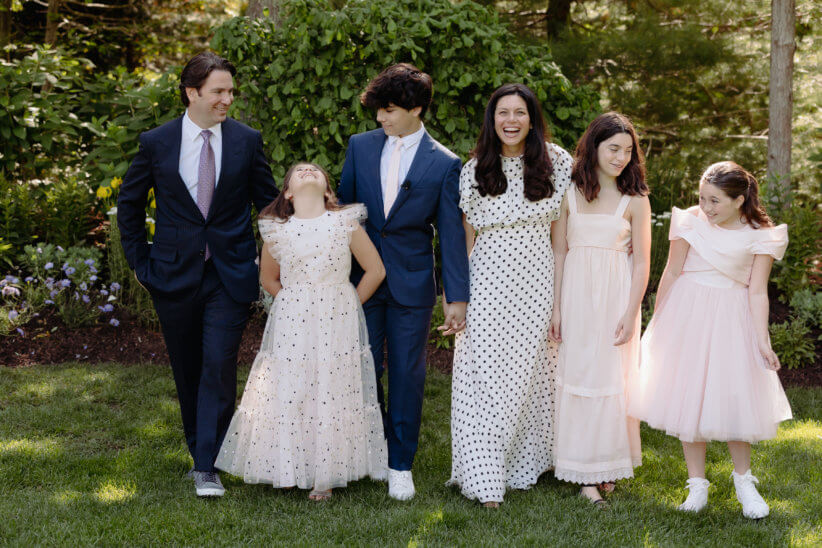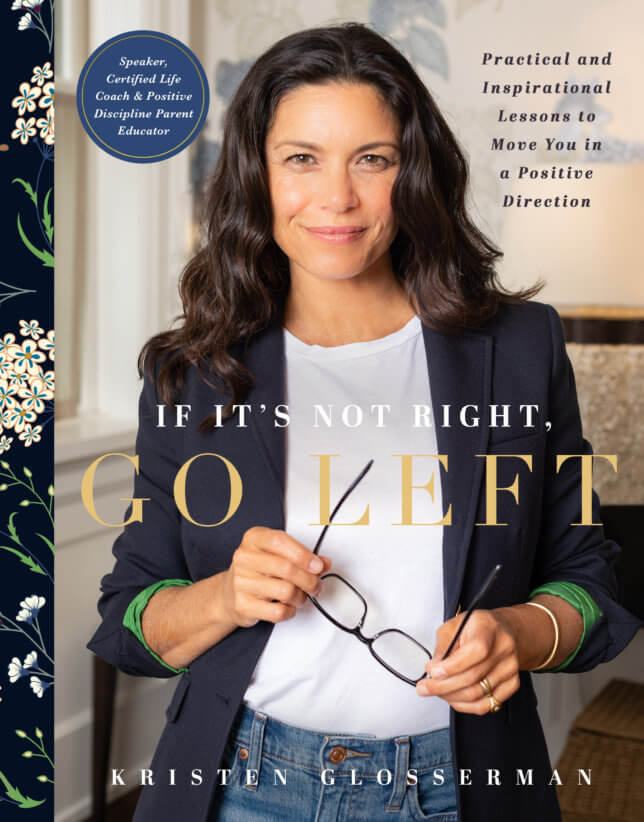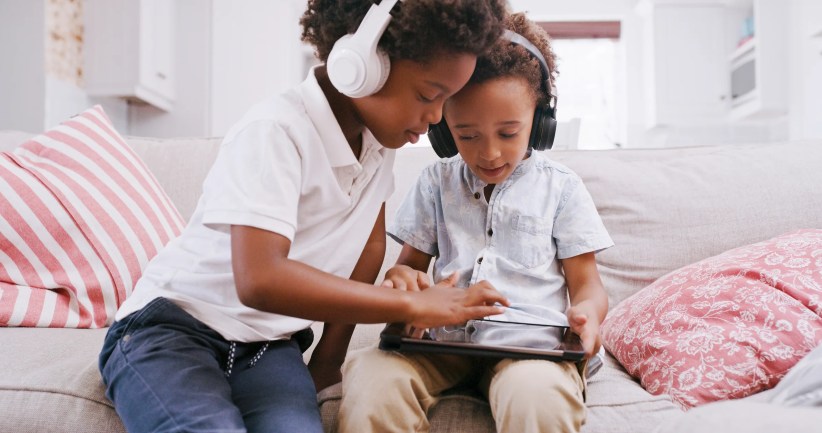
Relationship Tips on Reconnecting with your Partner
We all know that we were a bit at times on autopilot during the height of the pandemic. You and your partner got through this challenging time, and like most of us, did the best you could. We took each day as it came. We put one foot before the other. There were those times we let things slide since we were in one space together with nowhere to go. But now school is back in session, and while COVID is still a factor in our lives, we are starting to get back to normalcy. And, gasp, your partner is getting on your nerves again. This is all part of ‘getting back to normal.’ And now that we have space both mentally and figuratively, the regular life stuff is hitting us again.
We connected with expert Life Coach and author (If It’s Not Right, Go Left) Kristen Glosserman on getting back to a healthy relationship with the one you love.
Check out our Educational and Fun Toys Perfect For Fall!
As kids return to school and new variants pop up, making for the uncertainty of our next steps, how can couples get back to connecting without being in survival mode?
Connecting, really connecting, with your partner is like anything else: if it’s important to you, then you’ll have to allocate time and energy to it. So, if you have found that partnership was de-prioritized over the last year or two, you want to bring it back to the top of the list. Remember, it’s about energy; wherever we put energy is where it will grow. My husband and I have designated one night of every week as our date night. I talk about this, and how “Love is a Choice” in my new book, If It’s Not Right, Go Left. As a couple, Marc and I are very consistent with our date night, giving each other one night a week alone, just the two of us, where we can have that space every couple needs. With back-to-school, so much of parents’ energy goes into the children and their schedules and needs. I know every parent is completely tuned in to that right now. Still, it is important not to lose sight that you still have a partner, and that area of your life still requires energy and effort.
On our date nights, Marc and I stay conscious of the direction of our conversation, agreeing to talk about something other than the children or work. We’ve managed to create a discipline around our communication. It’s a practice, like yoga, and it’s something you start small and keep getting better at. Whenever we catch ourselves slipping in a negative direction, we use healthy, positive communication to stay close instead of drifting apart. Just by using positive language with your partner, you really can control the energy dynamics. The other night, my husband and I were bickering, and the next morning we both said, “I want love.” It works.
For date night inspiration, why not try:
• A new activity together, like going for an after-dinner walk or jog.
• Playing tennis or going bowling, just to shake things up a bit.
• Trade places in the kitchen, where Marc is awesome. I have my traditional favorite repertoire, but he challenges me with new-to-me recipes, such as Beef Wellington or cooking up a whole fish.
• Try to adjust your mindset and get on the same wave as your partner.
Remember, it’s about the shared experience more than anything else. So be spontaneous, and jump in the car for a mini-adventure; just a short distance from your home base, there could be something new and exciting worth checking out. COVID made it hard to travel, so Marc took us exploring nearby in the Hudson Valley, where we discovered some amazing places together.
After 20 months of total togetherness, how can couples maintain a healthy relationship as couples spend more time apart?
I think it’s about finding the value and benefit in change, any change. Change is hard, and change is good: that’s an important lesson in my book. So this newest change—more time apart instead of total togetherness—can be a good thing if you choose for it to be. Just think, now we have an opportunity to be on our own, to put a little more energy into our individualism and independence. Then, we can come back together and share that experience with our partner. It’s healthy when we choose to see change as a positive; that’s a great mindset. In any partnership, too much time together or apart—or anything too extreme—doesn’t benefit anyone. So yes, we got used to a lot of togetherness, and maybe it was too much. Embrace change by recognizing that there has been something beautiful about all this time together, and now it’s OK to do things differently. Recognize that there will be less time together, and choose how best to spend that limited time. YOU get to choose. Now, we can focus on the quality, not the quantity, of our time together. We can make those together moments count!
I recommend that you choose one night to be a family and stay home and cook. We like to do that with an early, cozy dinner on Friday or Sunday. Where will your moments be? How will you enjoy the time together you do have? Choose those moments because if we don’t choose, they won’t happen. With everyone’s schedules altered and in flux, we may have to create some new traditions… great! Change is hard, and change is good!
At the end of each chapter in my book, I give readers ThinkWork, my version of homework for grown-up success. So ask yourself these questions:
• How can this time apart be beneficial to me?
• What do I want to accomplish on my own?
• What would I like to create more space for?
• When is the best time for us all to come together?
When communications have ceased between a couple, how can they begin to speak to each other again?
Relationships—even the really good, strong ones—will go through highs and lows. I know, I’ve been married 15 years. Whenever we drift apart, it’s essential to have the hope and the belief that we can come back together again. And we do that by having small, achievable goals. It might be something as simple as bringing your partner a cup of coffee or tea, asking if they need anything when you’re running out to the store, or offering to assist with something they’re working on. Communication is the bedrock of any relationship, and questions are a great way to get couples connecting again: Do you need anything? Can I help you today? That line of questioning can restart the communication and get a couple talking.
Just the other week, Marc and I found ourselves at a real stand-off. The realities of back-to-school pressures were getting the better of us. After a day or two of “drifting,” I wanted to move us back together and in a positive direction. So I stayed up late and wrote my husband a letter. It’s a tactic I often use when trying to initiate a makeup. These are the guidelines I always follow:
• Be genuine in your outreach.
• Remain kind.
• Explain your position and be willing to move forward.
• Don’t expect anything in return.
Feel lighter with the knowledge that you’ve done your part in moving the situation in a more positive direction, and watch how things slowly resolve themselves. Try it and see!
Many couples have shared that they were on autopilot during the height of the pandemic, and problems are resurfacing. How does a couple know when it is time to see a therapist?
You can choose to move things in a healthy and positive direction. However, if the communication is breaking down and the two of you can no longer work together effectively, then it may be time to get help. And help can come in many forms; it may be a neighbor or marriage counselor, a psychotherapist, or life coach. Whoever you consult for help, remember the “change is good” mindset, view this challenge as an opportunity to move your relationship in a healthy, positive direction. The title of my book is If It’s Not Right, Go Left: I believe that when things aren’t right, it’s time to do something different. Whenever the two of you are not making progress—when you’ve tried to connect, have asked each other questions, creating small goals together yet not meeting them—then the progress, the hope, the joy of the partnership are just not happening because the communication has broken down. Get help. And by the way, help is not a failure; it’s a win because now we’re getting back on track, moving in a positive direction. Getting help is one of the strongest, smartest things you can do in any situation, but especially this one.

Glosserman found her true calling, Life Coaching, while overcoming a difficult time in her late 20s. She holds Coaching Certifications from the Institute of Life Coach Training, New York University, and Wharton. Glosserman has coached executives from Wall Street, Ralph Lauren and American Express, among others. A Positive Discipline Parent Educator and proud mother of four, Glosserman brings her relatable approach to parenting into her practice, providing practical, straightforward advice that works. A partner with her husband Marc in the hospitality business Hill Country Barbecue Market, Glosserman is completing her first, soon-to-be-published book If It’s Not Right, Go Left. Follow her on Instagram @kristenglosserman.
























